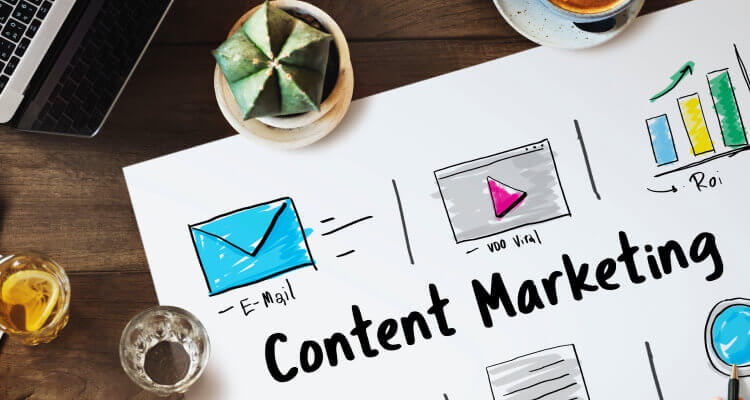
Email Marketing: A Powerful Tool for Business Growth
Email marketing continues to be one of the most effective ways for businesses to reach and engage with their audience. Despite the rise of social media, search engine marketing, and other digital strategies, email remains a direct and personal channel that drives meaningful connections and conversions. This article explores the key benefits of email marketing, effective strategies to implement, and best practices to make the most of this powerful tool.
-
Building Relationships Through Personalization
One of the most significant advantages of email marketing is its ability to build personal connections with potential customers and keep existing clients engaged. Personalization is key to effective email campaigns, and with the right tools, businesses can tailor their messages to individual recipients based on past behavior, interests, and demographics.
Example: A real estate company can use personalized email content to send property recommendations based on a user’s previous searches or inquiries. Similarly, e-commerce companies can send personalized product recommendations to customers based on their previous purchases.
-
Nurturing Leads with Automated Campaigns
Automated email campaigns are an excellent way to nurture leads and stay in touch with prospects over time. These campaigns can be set up to send emails at specific intervals based on actions taken by the recipient, such as downloading a whitepaper, signing up for a newsletter, or browsing certain products.
Example: A SaaS company might send a series of educational emails to new subscribers, helping them understand how to use their software and gradually converting them into paying customers. These emails can be automatically triggered by the user’s actions, ensuring timely and relevant follow-up without manual effort.
-
Segmenting Your Audience for Better Targeting
Audience segmentation is a crucial step in any email marketing campaign. By segmenting your audience based on various factors—such as geographic location, purchase history, interests, or engagement level—you can create highly targeted emails that resonate more effectively with different groups of people.
Example: An online clothing retailer could segment their email list based on past purchases, sending promotions for winter wear to customers in colder regions and summer clothing to customers in warmer areas. This ensures that the right products are presented to the right audience, improving the chances of conversion.
-
Leveraging A/B Testing for Continuous Improvement
A/B testing is an essential practice in email marketing that involves sending two variations of an email to a small segment of your audience to determine which performs better. By testing elements like subject lines, CTAs (calls to action), content layout, and images, marketers can optimize their emails for better performance.
Example: A company might test different subject lines to see which one gets a higher open rate. If one subject line outperforms the other, it can be used for the rest of the email campaign, leading to better results overall.
-
Ensuring Mobile Optimization
With the increasing number of consumers checking emails on their mobile devices, it’s more important than ever to ensure that your emails are mobile-friendly. A poorly formatted email on a mobile device can lead to a negative user experience and cause recipients to disengage with your brand.
Example: Using responsive email design ensures that your emails adapt to various screen sizes. This could mean adjusting the layout, font sizes, or even the CTA buttons to make them easier to interact with on smaller screens.
-
Measuring Success with Analytics
Email marketing platforms offer a wealth of data and analytics that can help businesses track the success of their campaigns. Key metrics to monitor include open rates, click-through rates (CTR), conversion rates, and unsubscribe rates. These insights allow marketers to understand what’s working and what’s not, enabling them to make data-driven decisions to improve future campaigns.
Example: A digital marketing agency might track the CTR of a promotional email offering a discount and compare it to the open rate. If the CTR is low, they could test a different offer or adjust the email content to improve engagement.
-
Complying with Email Marketing Regulations
With increasing concerns over privacy and data protection, businesses must ensure that their email marketing practices comply with relevant regulations, such as the GDPR in Europe and CAN-SPAM in the U.S. These laws set guidelines for obtaining consent, providing opt-out options, and safeguarding personal data.
Example: A company can ensure GDPR compliance by adding a clear opt-in process for subscribers, offering the ability to unsubscribe easily, and securing personal data through encryption.
-
Creating Engaging Content for Better Results
The content of your email plays a central role in driving engagement. To create compelling emails, focus on crafting subject lines that capture attention, writing engaging copy that speaks to the recipient’s needs, and using attractive visuals to make your emails more appealing. Clear and concise calls to action are also essential for encouraging recipients to take the next step.
Example: A non-profit organization might send an email with a powerful, emotionally-driven story about their cause, followed by a clear CTA to donate. Engaging content like this is more likely to resonate with readers and inspire them to act.
Conclusion: Why Email Marketing Remains a Cornerstone of Digital Strategy
Email marketing is a versatile, cost-effective, and impactful tool that businesses can use to nurture leads, increase conversions, and strengthen customer relationships. Whether you are automating emails, personalizing content, or optimizing your campaigns, email marketing provides businesses with the ability to directly reach their audience with relevant, engaging, and timely content.
At Kapsula, we specialize in email marketing strategies designed to enhance your brand’s visibility, engagement, and ROI. Let us help you create email campaigns that deliver real, measurable results. Contact us today to learn more about how we can take your email marketing to the next level!
Sources:
- HubSpot: Email Marketing Strategy
URL: https://blog.hubspot.com/marketing/email-marketing - Mailchimp: Email Marketing Best Practices
URL: https://mailchimp.com/email-marketing - Campaign Monitor: Guide to Email Marketing Automation
URL: https://www.campaignmonitor.com/resources/guides/email-marketing-automation/ - Constant Contact: The Ultimate Guide to Email Marketing
URL: https://www.constantcontact.com/email-marketing - Google: Mobile Optimization for Emails
URL: https://support.google.com - Litmus: Email Marketing Analytics
URL: https://www.litmus.com/blog/email-marketing-metrics/ - HubSpot: GDPR Compliance for Email Marketing
URL: https://blog.hubspot.com/marketing/gdpr-compliance-guide




